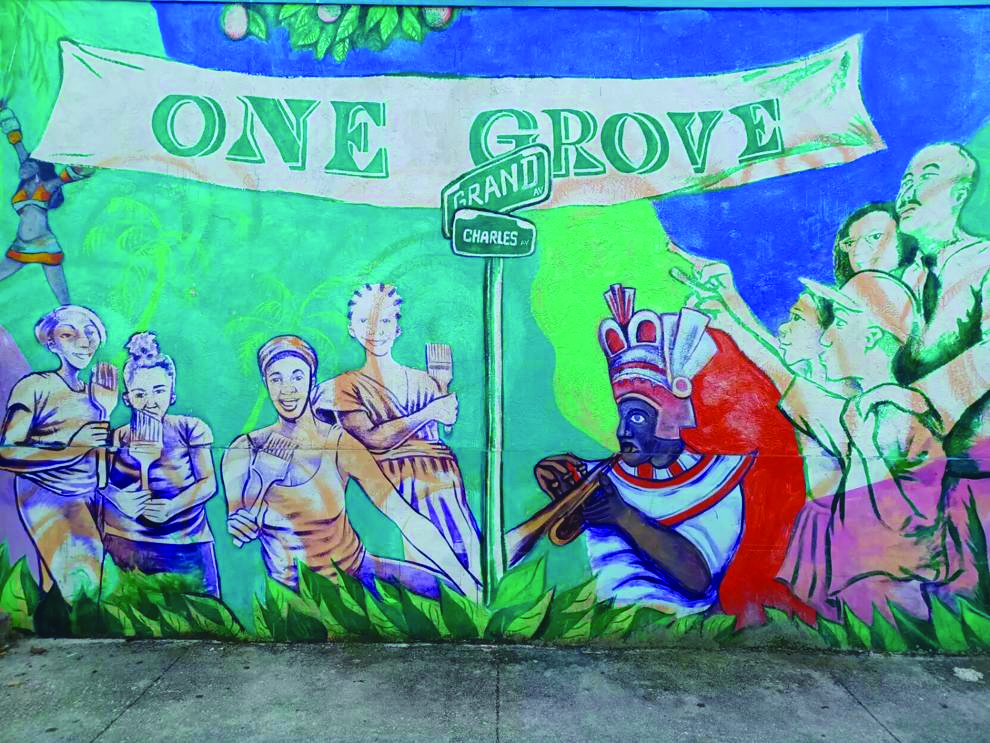A mural in the historically Black western portion of Coconut Grove with the unifying catchphrase “One Grove.”
By Joshua Ceballos, WLRN
(Source Miami Times):
Reverend Willie F. Ford’s church is emptier than it used to be.
It’s not that his congregation doesn’t want to come in on Sundays, he says — it’s that they can’t. In the past decade he’s been ministering at St. Matthew Community Baptist Church, Ford has seen his flock dwindle as parishioners are priced out of their homes in the predominantly Black Coconut Grove Village West.
“People who have lived here for years are displaced and can’t come back. They’ve had to move to Florida City and Homestead. That’s a long way to travel for church,” Ford tells WLRN.
Village West, settled largely by Bahamians who built much of Miami in the late 1800s, has been victim to gentrification for years. Large-scale developments in the surrounding area have driven up rents and made the community unlivable for longtime residents.
Reverend Ford and a coalition of community advocate groups believe the City of Miami is at fault for this, and they want the federal government to do something about it.
In a new complaint to the U.S. Department of Housing and Urban Development (HUD), the advocates accuse the city of a longstanding pattern of discriminatory zoning that disparately affects communities of color and contributes to the “resegregation” of Miami.
The complainants, who include the Coconut Grove Ministerial Alliance, the Coconut Grove Village West Homeowners and Tenants Association, and Grove Rights and Community Equity, Inc., allege the city has violated the 1968 Fair Housing Act.
“The Black Coconut Grove Village West residents … were subject to displacement by disparate degrees and measures that were not similarly experienced by White residents. These Black residents … were, moreover, displaced into communities that ended up being as much or even more segregated than before,” Alexander Rundlet from University of Miami’s Law School wrote in a letter supporting the advocates’ complaint.
Named respondents to the complaint include Miami City Commission Chairwoman Christine King and City Building Director Asael Marrero.
A HUD spokesperson told WLRN the department received the complaint but cannot comment on investigations. The City of Miami Attorney’s office said they are also in receipt of the letter.
“We received the claim, and we look forward to responding to the allegations,” a spokesperson for the City Attorney’s office said.

